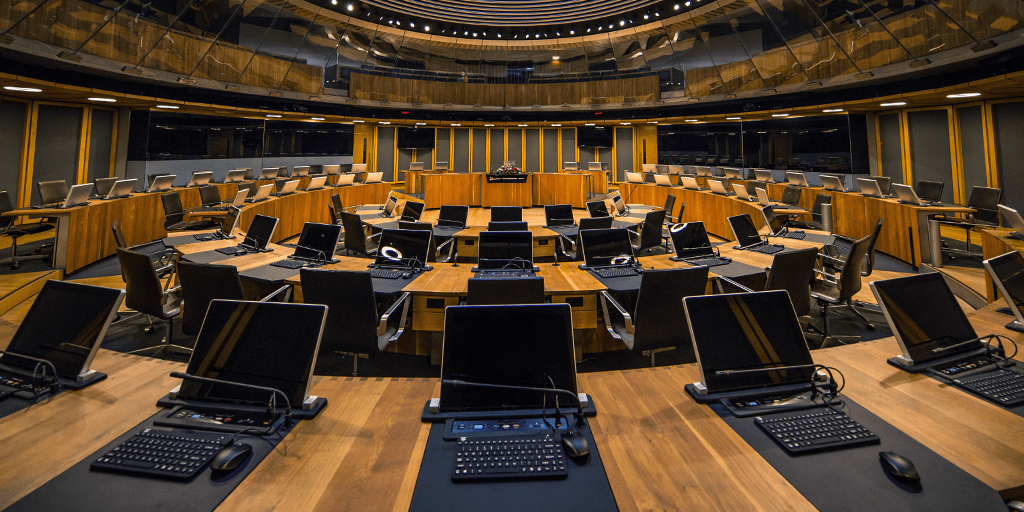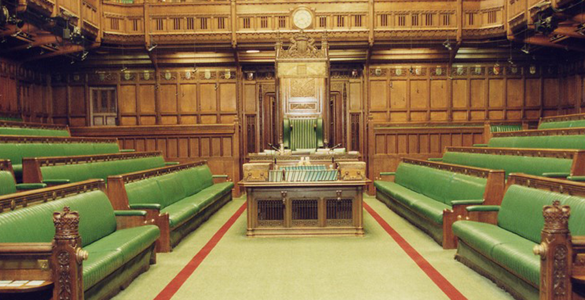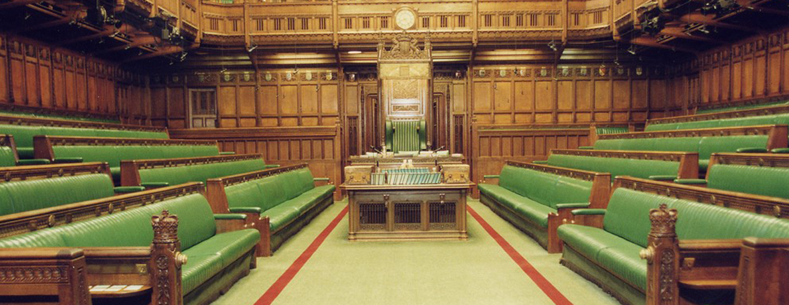Last month, we published a blog post outlining how the UK Parliament and the Assembly would have their say on the Brexit deal negotiated in Brussels. Since then, there have been some important developments in the process. This article provides an update.
What’s brought us to this point?
This evening, MPs were due to vote on whether to accept the Brexit Withdrawal Agreement and Political Declaration, following five days of debate. However, after three days, on Monday 10 December, the Prime Minister announced her intention to postpone the crucial vote. She stated her belief that the deal ‘would be rejected by a significant margin’, because too many MPs object to the proposals for the ‘backstop’—the plan to avoid a hard border on the island of Ireland in the event of no deal. The Prime Minister did not say when the vote will be rescheduled.
When the vote does take place, the Speaker will be able to select up to six amendments to the motion be voted on. As outlined in our previous post, there was disagreement around whether amendments to the UK Government’s motion would be taken before or after the vote on the motion itself. The business motion tabled on 4 December shows that the Government have accepted the recommendations of the Procedure Committee on this matter, and that votes on amendments will be taken before the vote on the approval motion.
What’s been happening in the debate
Looking back to the first day of debate on 4 December, a significant development was MPs voting in favour of an amendment to the business motion tabled by Dominic Grieve. Under section 13 of the EU (Withdrawal) Act, if the approval motion is rejected, the Government will have 21 days to make a statement on how it intends to proceed, and then move a motion for the House of Commons to ‘take note’ of that statement. This means that no amendments may be tabled to the motion. Dominic Grieve’s amendment, however, means that this rule does not apply in this scenario, which means that Parliament would be able to amend a motion setting out the Government’s plan of action if the deal is voted down. These amendments would not be legally binding, but could be significant in terms of the way forward.
Of the amendments tabled to the approval motion, the only one to have wide cross-party support is an amendment by Hilary Benn, the Chair of the Exiting the EU Committee. His amendment rejects the Withdrawal Agreement and Political Declaration, rejects the possibility of the UK leaving the EU without a deal, and calls on the Government to bring forward the motion on what it intends to do next ‘without delay’. Again, this amendment, if passed, would not bind the Government, but Parliament’s rejection of a no-deal scenario would be a significant development.
Other amendments—including an amendment by the SNP’s Ian Blackford, supported by Plaid Cymru—propose to extend the Article 50 deadline, to give more time to decide how to proceed. Most amendments tabled do not include alternatives to the Government’s deal.
What have Welsh MPs been saying during the debate?
In the debate in the House of Commons, Welsh MPs have mostly concentrated on the economic impact of Brexit. Labour MPs Chris Ruane and Susan Elan Jones talked about the structural funds that Wales has received. They opposed the deal by saying that the negotiated agreement would make Wales poorer. Plaid Cymru’s Hywel Williams also rejected the deal by talking about its economic impact. He concentrated his comments on the effect on EU staff and students in universities and hospitals. Welsh Conservative MPs have shared a variety of views on the deal during the debate. David Jones said that he will not be supporting the deal, stating that the UK would lose its sovereignty and freedom of self-determination ‘contrary to the wishes of its people’. However, Alun Cairns, representing the Government, said that the negotiated deal is the best available for Welsh jobs and the Welsh economy, adding that the UK Government would continue to work with the Welsh Government to seek a legislative consent motion for the Withdrawal Agreement Bill when it goes through Parliament.

Developments closer to home
Following a commitment by the First Minister that the Assembly would get a vote on the Brexit deal, the Welsh Government tabled a motion for debate in Plenary on Tuesday 4 December. In setting out the Government’s viewpoint, Finance Secretary Mark Drakeford said that the Withdrawal Agreement fails to meet the ‘fundamental interests’ of Wales and the UK. As part of the debate, the Assembly approved amendment 2 to the original motion, tabled by Plaid Cymru, which provided for the rejection of the Withdrawal Agreement in stronger terms. A total of 34 AMs voted for the amended motion, with 16 voting against. That motion states that the Assembly:
- Rejects the Withdrawal Agreement and the political declaration on the future relationship between the UK and EU agreed by the European Council and the UK Government.
- Believes that the future relationship as envisaged by the political declaration falls short of the model for the UK–EU future relationship set out in Securing Wales’ Future, which provides robust guarantees in respect of workers’ rights, human rights, equalities legislation and citizens’ rights.
- Notes that the UK Government’s long-term economic analysis projects the UK economy will be worse off by 3.9 percent over 15 years under the current Withdrawal Agreement and political declaration.
- Calls on the UK Government to seek UK membership of both the European Single Market and Customs Union.
- Calls for an extension to the Article 50 process.
- Believes that the UK Government should declare now its intention to negotiate on that basis and that if it fails to do so, there should be either a general election or a public vote to decide the terms on which the UK leaves, or whether it wishes to remain.
The Scottish Parliament also passed a motion rejecting the deal, as well as the prospect of leaving without a deal. Neither the Assembly’s motion nor the Scottish motion are binding on the UK Government. At the moment, it is not known whether there would be another debate and vote in the Assembly if the UK Government’s approval motion is not agreed.
So, what could happen when the vote takes place?
If the Commons agrees the Government’s motion without amendment, this will mean that they back the deal. Then, provisions to implement the Withdrawal Agreement must be passed in an Act of Parliament—this would be the EU (Withdrawal Agreement) Bill. The text of the Withdrawal Agreement would also need to be approved formally by the European Parliament.
If Parliament amends the motion to approve the deal, the Government’s ability to ratify the deal could be constrained—especially if the motion is amended so that it doesn’t express approval of the deal that was negotiated. It is likely that the Government would take legal advice on whether any amendments would prevent the UK ratifying a deal. If the motion were amended and it was believed that this stopped the Government from ratifying the deal, the Government’s decision to ratify the Withdrawal Agreement could be challenged.
If the motion to approve the deal is rejected, the Government would have to make a statement to Parliament setting out what it intended to do next. Parliament would then have an opportunity to vote on those plans, on a motion expressed ‘in neutral terms’. As explained above, Dominic Grieve’s amendment will allow MPs to table amendments to the Government’s motion to influence the next steps. This means that there could be a further meaningful vote if the deal is voted down.
Article by Peter Hill, National Assembly for Wales Research Service






